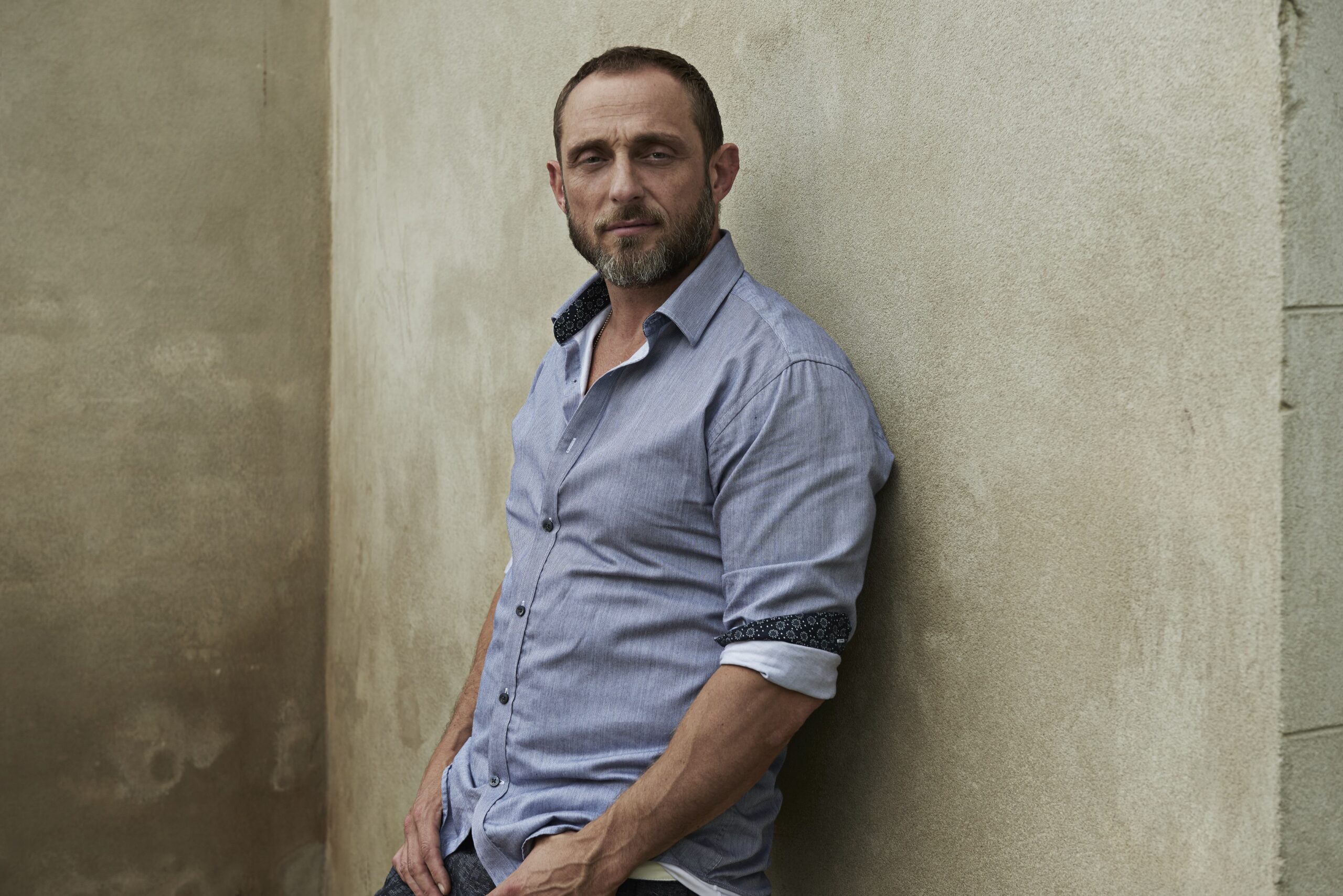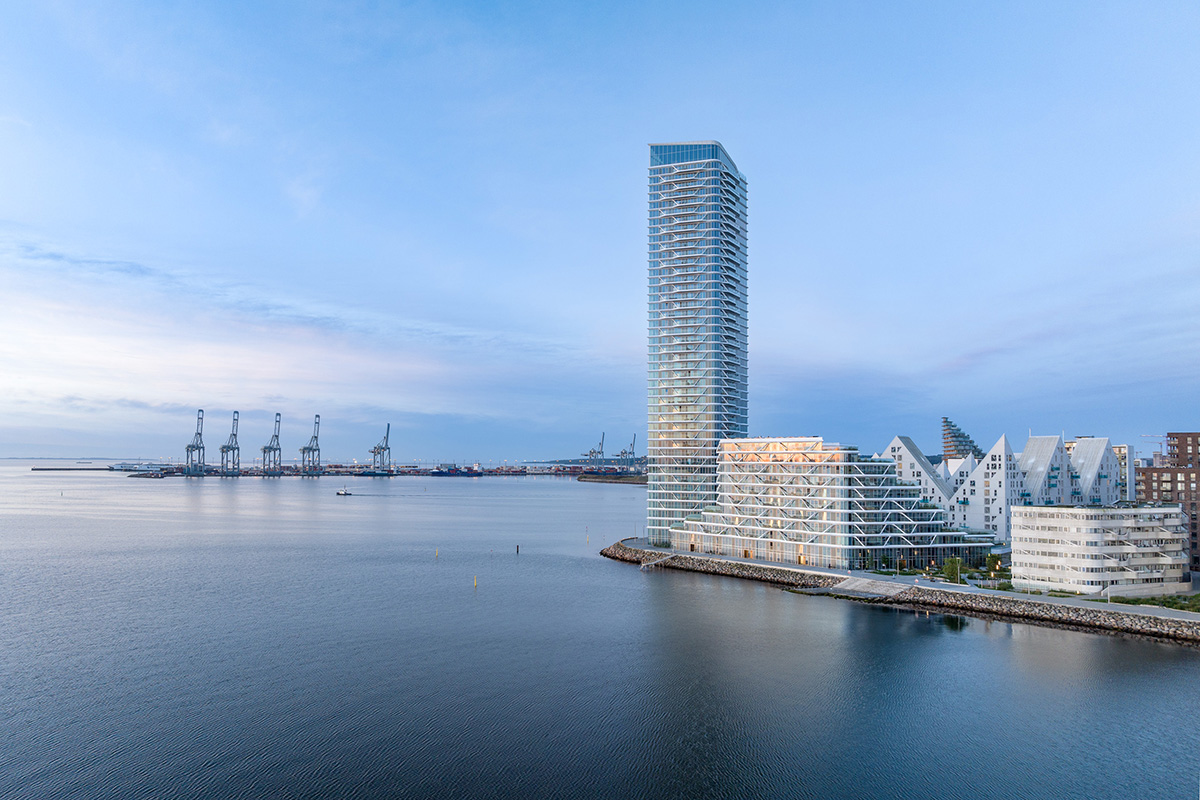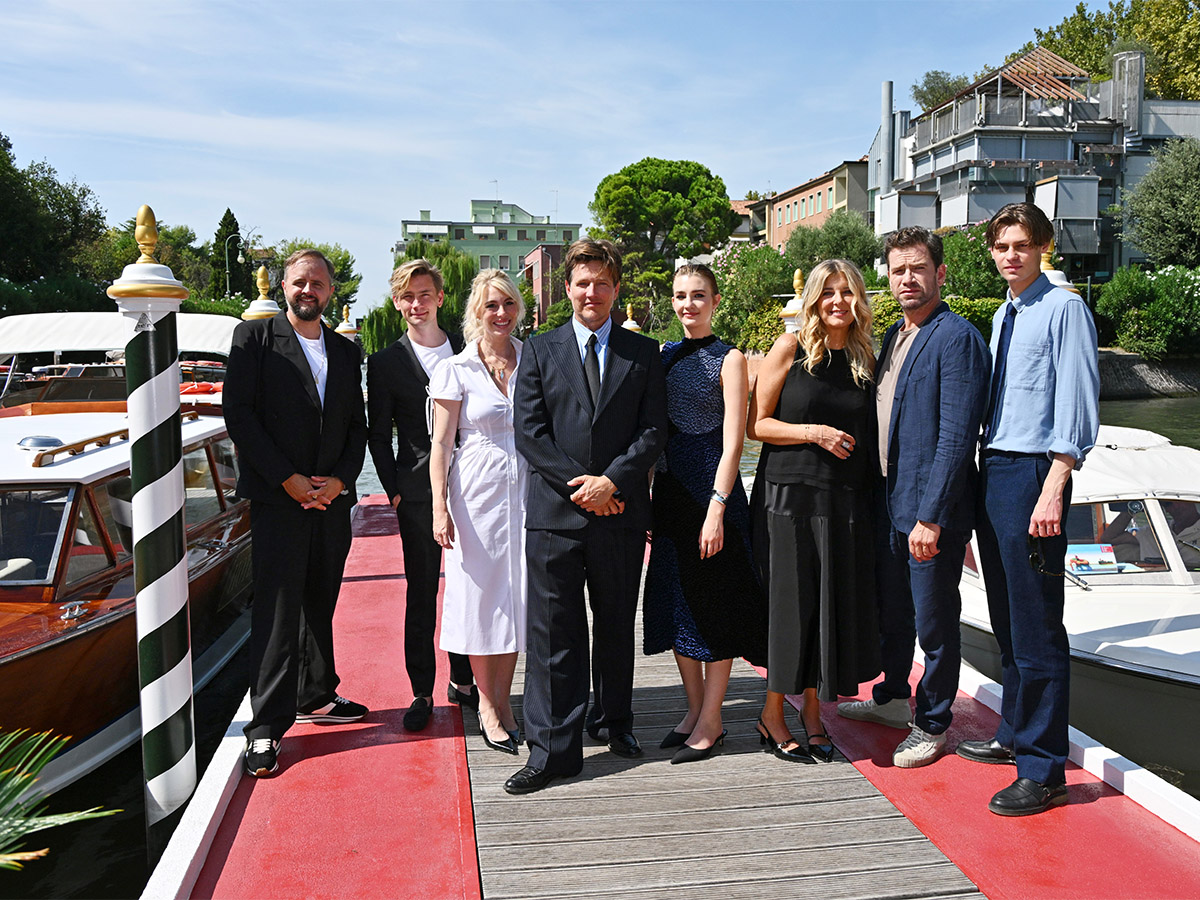Roland Møller: Rejecting the villain
Text: Linnea Dunne | Photos © Nikolaj Møller

F rom time in one of Denmark’s most notorious prisons, to a leading role in an Oscarnominated film, Roland Møller has been on quite a journey. But, as the Danish actor tells Scan Magazine, the journey is far from over. With three big releases due out this year, he is looking to turn his back on the bad guy persona and broaden his repertoire.
“I don’t like to call myself an actor. I don’t act – I project feelings; I’m a storyteller on screen,” says Roland Møller. “I try not to be in my head, I just feel the scene and act from my gut, follow my heart. That’s when I really nail a scene.”
Of course he is an actor, at least in the sense of playing a major role in an Oscar-nominated film, but it is fair to say that he is far from the traditional type. Not only does he lack entirely in formal training and qualifications, but he has also spent four and a half years in one of Denmark’s most notorious prisons. “I was never really a bad guy,” he says. “I was acting in a criminal environment. I didn’t really like it but I needed action and got bored quickly, so when people challenged me to a fight I wouldn’t step down. With this position in the criminal underworld I acted like I was crazy and could explode at any time, but in real life I’m actually quite a nice guy.”
Back to Horsens State Prison
That he found his way into the world of film was somewhat of a coincidence. After writing extensively while in prison, mostly as self-therapy and initially with the plan to make a book out of it, Møller was contacted by Tobias Lindholm who had heard about the writing. “He told me he was making a film and wanted to read my notes, and then eventually he contacted me for help with developing the script,” says the Dane. “Then Horsens State Prison, the old prison I’d served time in, was emptied and became available – this place that would cost millions to build, with doors full of history – and then we bounced ideas off each other, got funding and help with casting and so on.” The now famous Pilou Asbæk got on board and Møller coached him in how to talk and walk and move as a villain. “Then Tobias wanted me to play a part, I said ‘no way, gangsters don’t go out in the spotlight!’, but I thought maybe the girls would like me if I had a small part – that was my motivation.”
What he thought would be a small part turned out to be not so small in the finished cut of the film R, which earned him nominations for Supporting Actor at the Bodil Awards and the Danish Film Critics Association Awards. He went on to star in Lindholm’s next film, A Hijacking, as well as R co-director Michael Noer’s 2013 Northwest, and for the latter he finally won his first Bodil Award for Best Actor in a Supporting Role. “It was when I won my first prize that I really thought that maybe there’s something I’m good at here,” says Møller. “I’d never dreamed of being an actor – as a kid I wanted to be a fireman!”
His first leading role also won him his first Bodil Award for Best Actor in a Leading Role and a sniff at an Oscar. Martin Zandvliet’s Land of Mine was nominated in the Foreign Language Film category for the 89th Academy Awards and lost out to The Salesman, but Møller was thrilled that the film was picked up. “I didn’t see it coming at all, but I’m very happy for Martin. He really fought for me. Investors and others were like, ‘why not Mads Mikkelsen or Nikolaj CosterWaldau?’, but I was his obvious choice – and with that in mind I’m very happy,” says the actor.
The film is a Danish-German historical drama telling the story of the aftermath of the surrender of Germany in May 1945, when prisoners of war were sent to clear two million mines in Denmark with nearly half of the 2,000 soldiers losing their lives or limbs. Møller plays the Danish sergeant Carl Leopold Rasmussen who oversees the dangerous work of the young Germans, whom he is determined to treat coldly and without an ounce of sympathy. Møller thinks that one of the film’s strengths is its universal themes – a small story in a small country that is relatable globally.
“We may have issues with our neighbours, but when you sit down and talk to them and you look your enemy in the eye, you learn that you have more in common than that which divides you. Why do we fight?” he says. “Many films portray the bad guys as bad and the good guys as good, but it’s never really like that – we’ve all got demons we fight with. Rasmussen really works with that; there’s a scene where he kind of sees the light, and from that moment on he slowly tries to change to become better. I loved working with a character like that. A lot of us have walked in the darkness and we reach for the light. I was walking in the darkness once.”
Years of saying ‘no’
Does he feel he was put in a box because of it? “I definitely was, but I don’t blame them. I’m not an educated actor and they could only see me playing the villain who’s bad through and through,” he says plainly. “It’s been a long struggle from that first prison movie I did – I had years after that of only being offered roles as a hooligan, a gangster, some racist, and I just had to keep saying no. I had no money, so it was a hard time in my life, my but it’s during the hard times in your life that you learn about your strengths and weaknesses. Looking back, that made me stronger.”
Moreover, it seems to have worked. This year alone, Møller will be seen in three very different roles. He will be starring in Atomic Blonde with Charlize Theron and James McAvoy, in The Commuter alongside Liam Neeson, and in the remake of Papillon, directed by Michael Noer. “I get a lot of scripts from Hollywood at this stage,” he says, but refuses to jinx 2017 as the year his career goes to the next level. “I’m just about to start a French film where I play a lead role, a prison guy but a very different kind of prison guy, and I’m currently reading a script about a dad with two kids, a family drama. All that turning villain jobs down is starting to pay off.”
Subscribe to Our Newsletter
Receive our monthly newsletter by email





